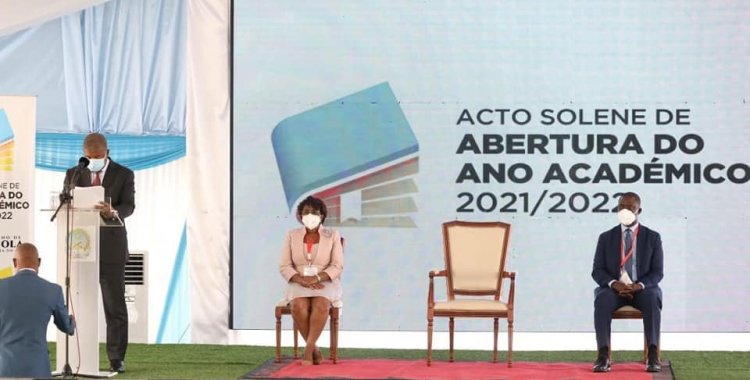João Loureço, who was speaking at the official opening ceremony of the academic year 2021/2022, assumed that "there is still a long way to go in increasing the number of full-time faculty and administrative staff".
"In order to obtain the ratio of professors/students closer to those recommended internationally", said the head of State during the opening of this ceremony, which took place in the province of Bié, in the central/south region.
To "achieve this objective", João Lourenço pointed out, "the exceptional administrative provision of teachers carried out in 2018 nor the public admission exam carried out in 2019 was not enough".
The actions of those years, he stressed, "allowed the removal of about 1050 teachers from the stagnation in the teaching career, so the preparatory process for the holding of public examinations in Higher Education is in progress".
The academic year of the higher education subsystem officially kicked off this Tuesday and the Ministry of Higher Education, Science, Technology and Innovation (MESCTI) "made available and authorized" close to 145,000 places for public and private higher education institutions.
About 145,000 places, of the 186,670 requested, are "available and authorized" for higher education institutions, public and private, for the academic year 2021/2022, announced the sector authorities.
The national higher education network in the country is made up of 93 legally recognized institutions, 29 of which are public and 64 private, and three new public universities, "resulting from the reorganization of the network", will be part of this teaching subsystem as of this academic year.
According to João Lourenço, in recent years important reforms have been introduced in the higher education subsystem, "aiming at a model more in line with its development and, consequently, a better provision for" the "country, with the academic regions having already been abolished".
For the President, with the new legal regime of the higher education subsystem, the conditions for the application of the rules of the general electoral regulation are created, and it is up to the higher education institutions to carry out their electoral elections.
"Of the various transformations that have been taking place in higher education, I emphasize the need for the sector to carry out the process of evaluating the institutions and courses and/or undergraduate and graduate programs that make it up", he said.
The President also expressed, in his speech, the desire to see the country's higher education institutions "carry out the mandatory assessment of teaching performance, which was subject to the constraints of covid-19".
A training action, through a university administration course with funding from the European Union (EU), should be carried out soon, announced João Lourenço, to promote the qualification of 200 academic managers.
With the creation, in July of this year, of the Foundation for Scientific and Technological Development (Fundecit), he noted, "an important step was taken in the financing of science, in order to strengthen and make consistent the competitive financing of institutions of higher education".
In the field of Science, Technology and Innovation, the President pointed out, a deal was negotiated with one of the most prestigious scientific publishers in the world to acquire a package of access for three years to up-to-date scientific literature for around 3000 professors and researchers.
João Lourenço also defended that the State "should exercise its authority" to inhibit the emergence of illegal establishments or even "close those who by default insist on teaching".
"At a time when we are working to increase the quality of education in Angola, when we are working for the international recognition of diplomas from our universities, we cannot continue to tolerate the existence of illegal teaching establishments whose main purpose is easy profit. ", noted João Lourenço.
The President also inaugurated in that province the International University of Cuanza, whose promoter is the Euro-African University Foundation of Spain.
João Lourenço assumes shortage of teachers and administrative staff in higher education
The President acknowledged that, “despite the efforts that have been undertaken”, the “scarcity of teachers and administrative staff” to respond to the specific needs of each higher education institution in Angola is still a reality.







